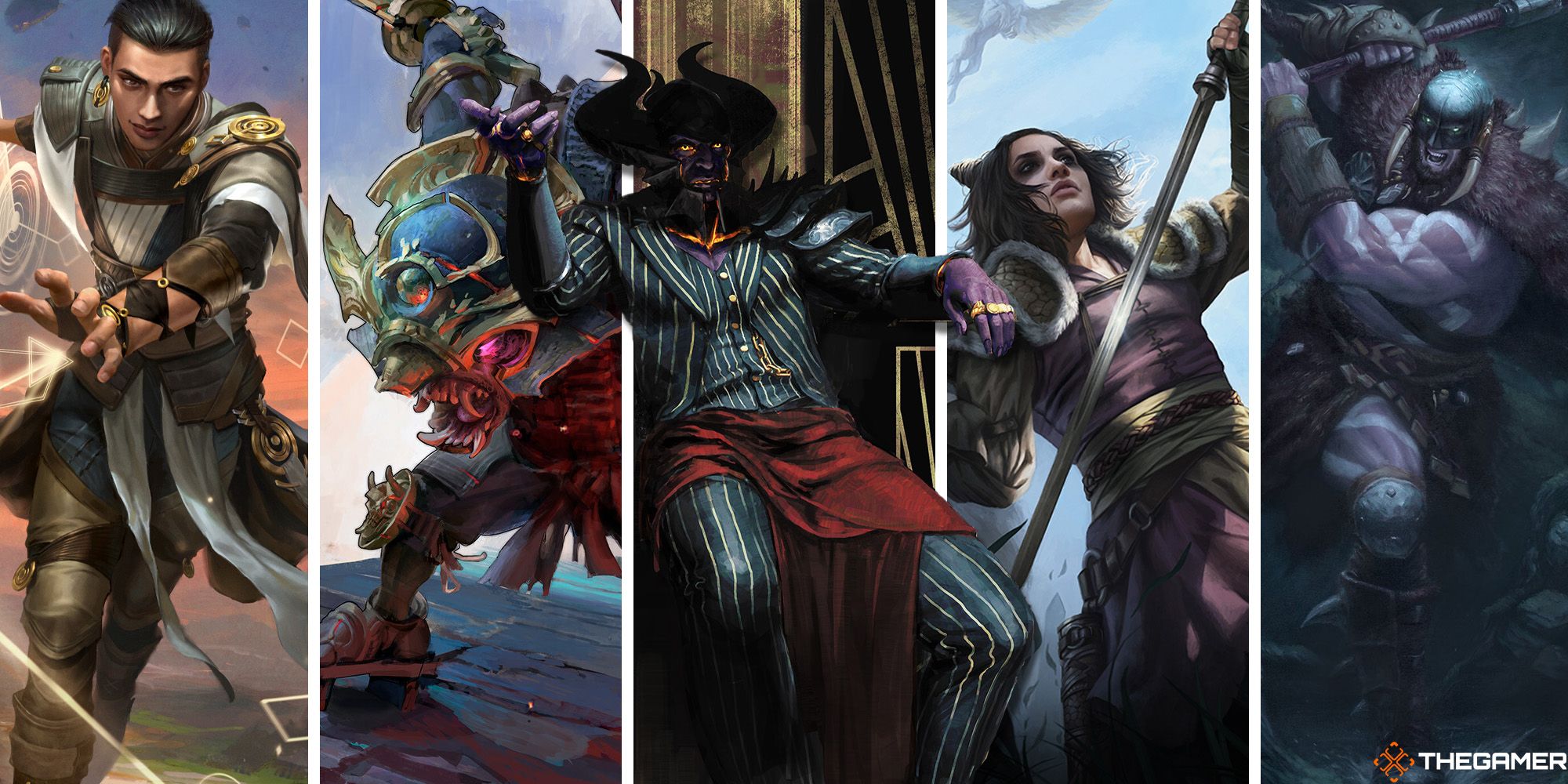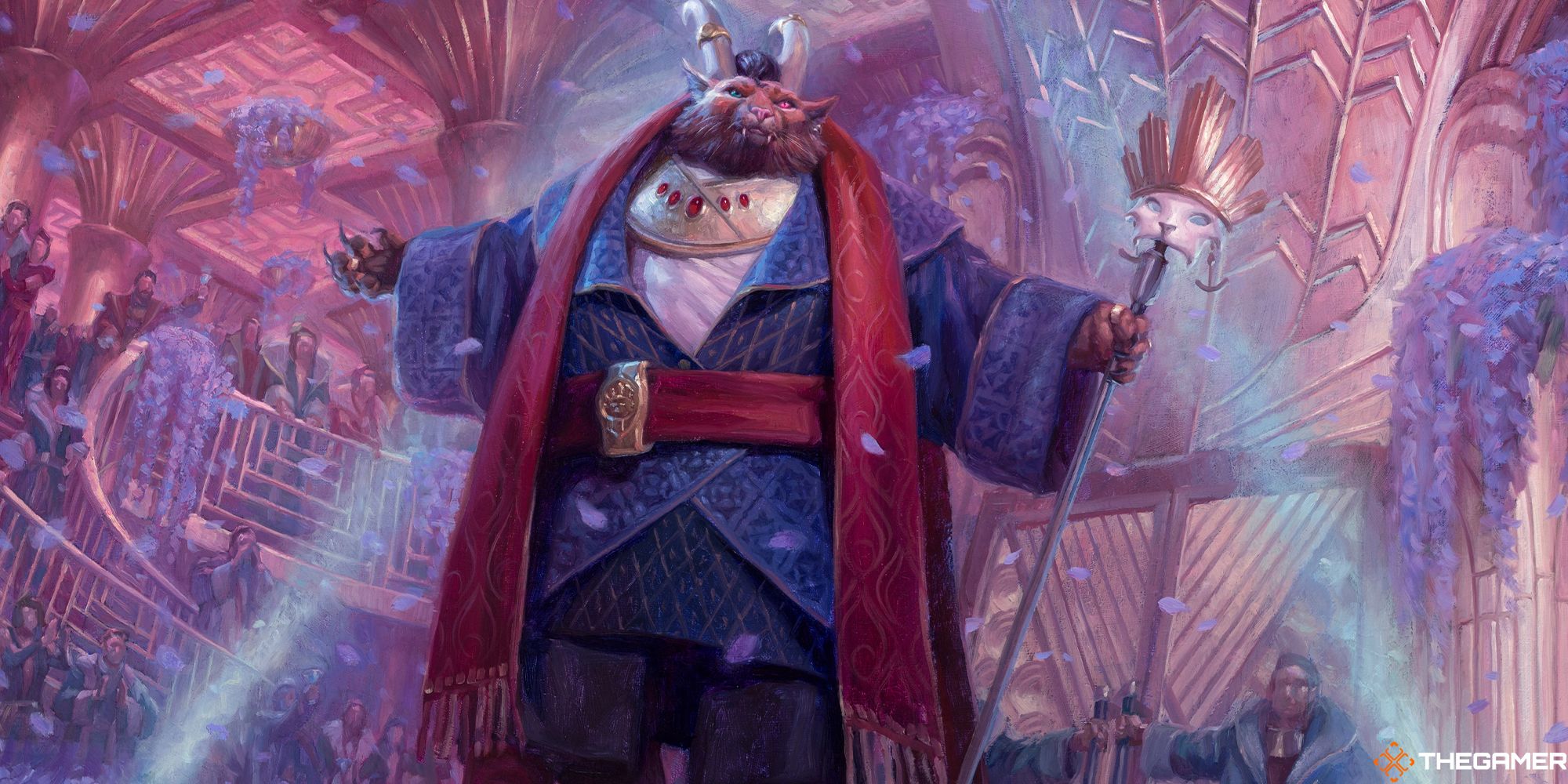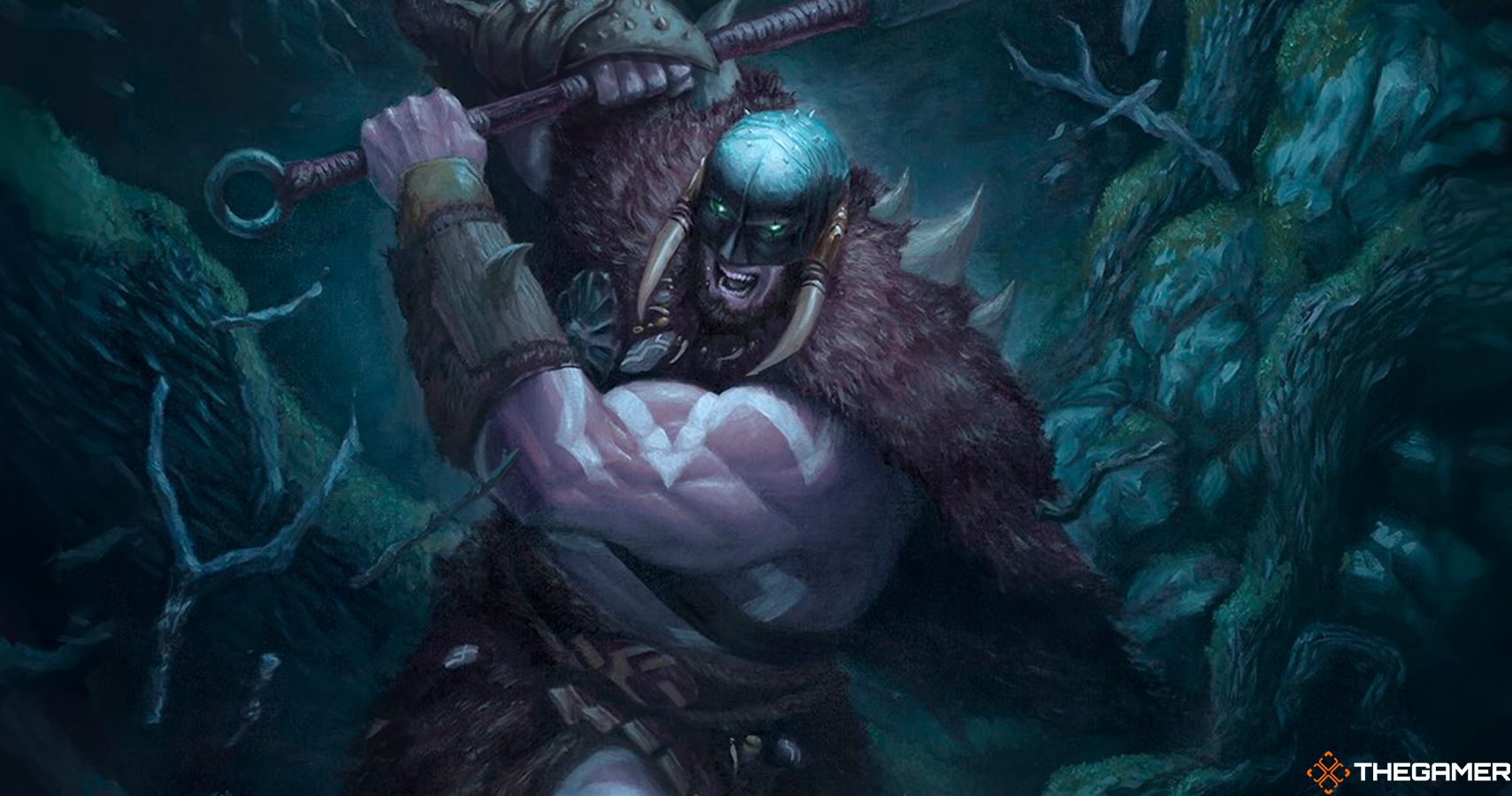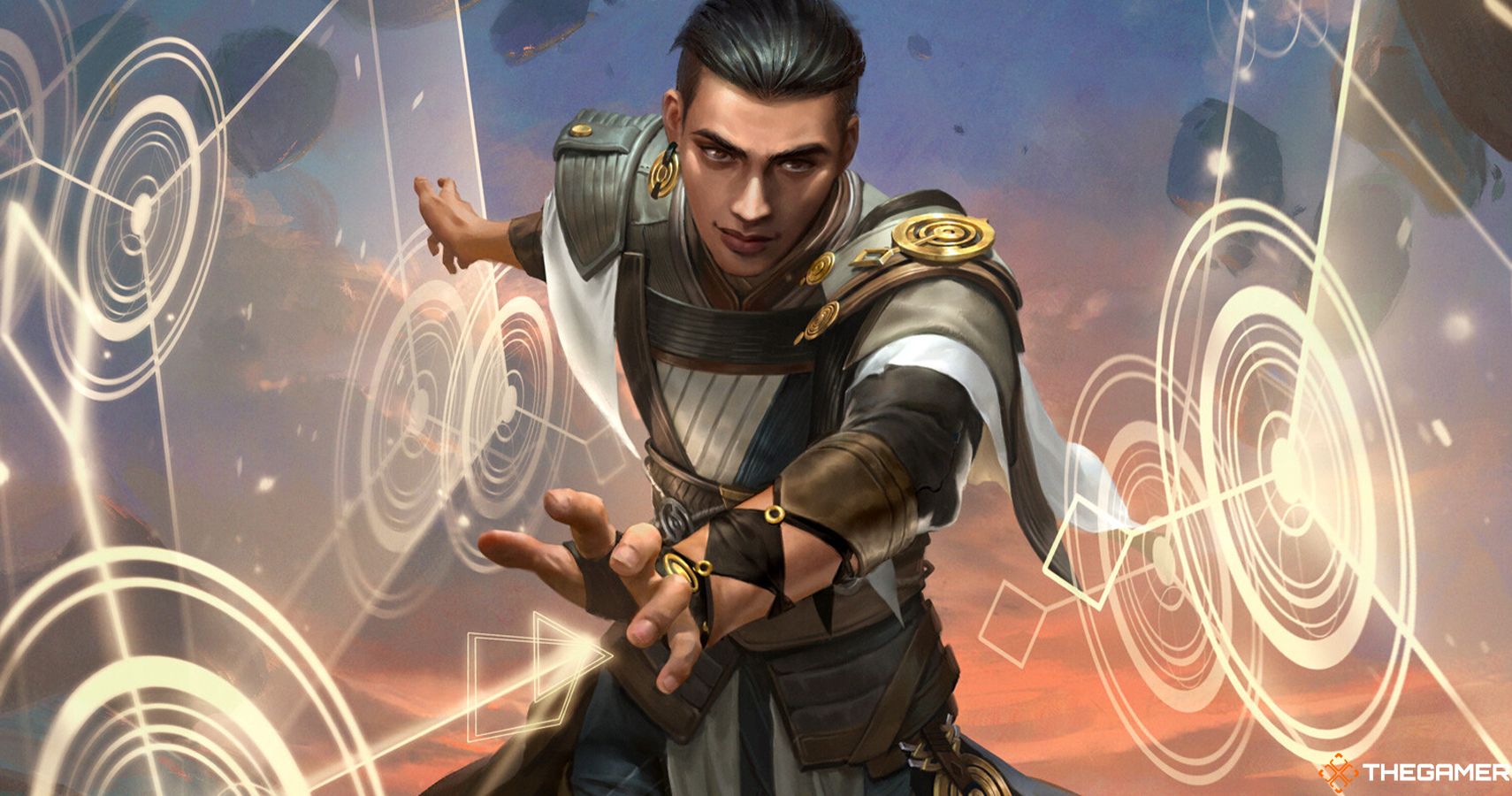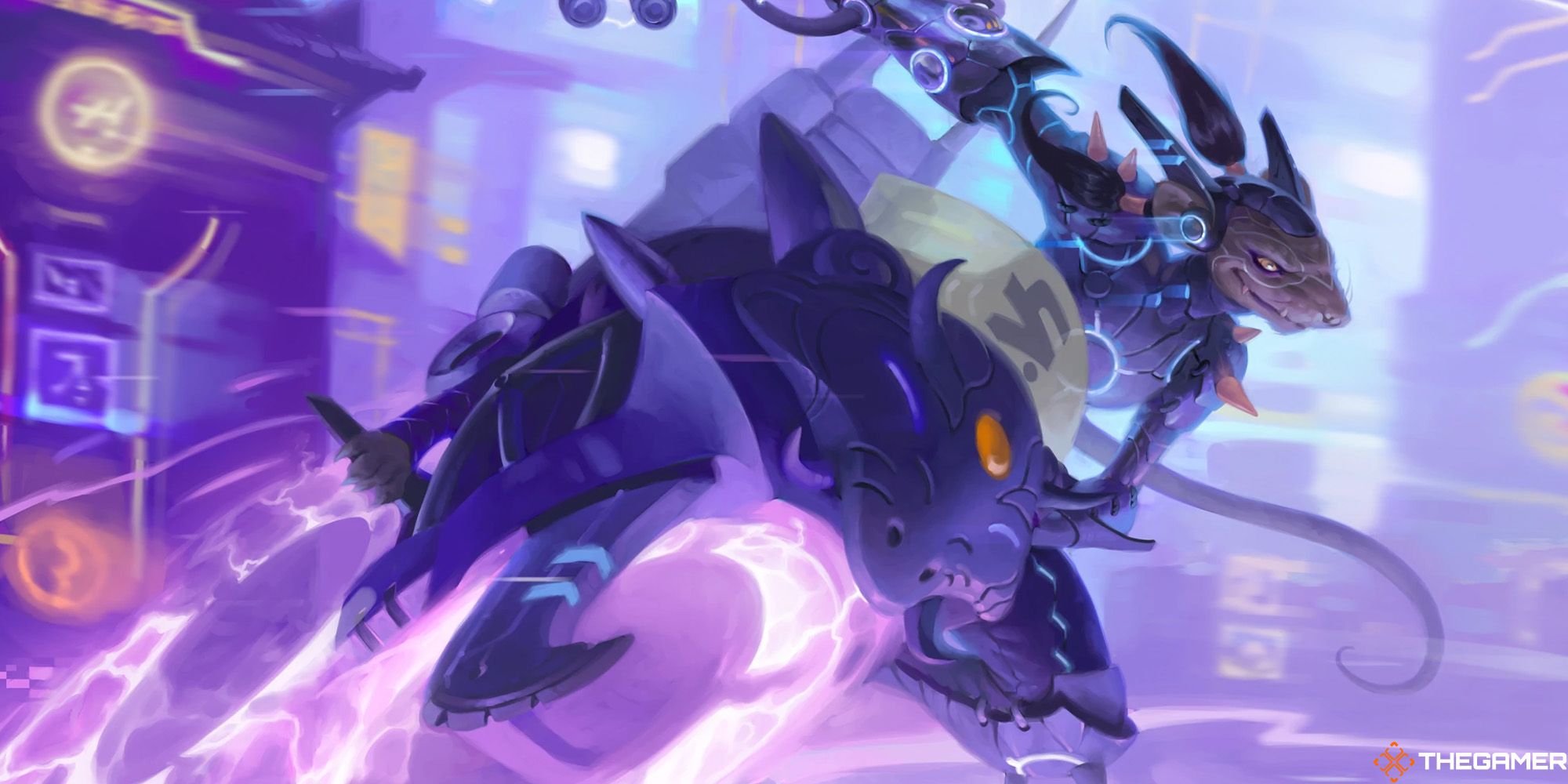Magic the Gathering Arena might not have the dizzying number of formats the tabletop game does, but there's still a lot included for players to get stuck into. Each format has its similarities, but they're also radically different enough to make each of them their own experiences with new quirks and strategies to learn.
Here's everything you need to know about Arena's main formats: Standard, Alchemy, Historic, Explorer, Brawl, Historic Brawl, Sealed, and Draft.
Updated May 5, 2022 by Joe Parlock: Who could have anticipated MTG Arena would change so much in six months? Alchemy completely upended the game with a whole new, digital-exclusive format, and Explorer pulled us back into true-to-tabletop Magic. Every format has changed so much, and so the article has been updated to reflect that.
Standard
Standard is Magic's 'premiere' format, being the one most sets are primarily designed to support.
Standard is notable as being one of a handful of rotating formats, meaning cards will eventually leave the format and no longer become legal. Though this is a barrier to entry for some people, it also allows the format to remain fresh and prevent any particularly high-power sets (like the recently rotated out Throne of Eldraine) from completely dominating the metagame.
Rotation can be tricky to follow at times. Every year, around the launch of the early Autumn set, the four oldest sets in Standard are rotated out and are not longer legal. In 2021, with the launch of Innistrad: Midnight Hunt in late September, the annual rotation took place and Throne of Eldraine, Theros: Beyond Death, Ikoria: Lair of Behemoths and Core 2021 all rotated out. The next rotation will be with the launch of Dominaria United in Q3 of 2022, when Zendikar Rising, Kaldheim, Strixhaven: School of Mages, and Dungeons & Dragons: Adventures in the Forgotten Realms all move out of the format.
The current Standard format is:
- Zendikar Rising
- Kaldheim
- Strixhaven: School of Mages
- Dungeons & Dragons: Adventures in the Forgotten Realms
- Innistrad: Midnight Hunt
- Innistrad: Crimson Vow
- Kamigawa: Neon Dynasty
- Streets of New Capenna
Arena splits Standard into two kinds, Best-of-One and Traditional. As the name suggests, best-of-one is a one-off game between you and an opponent, and it comes to an end when one player loses. Traditional, on the other hand, more follows the tabletop rules of being a best-of-three game. Between each game in a Traditional round, you are free to swap cards between your deck and your 15-card sideboard.
Arena also splits Best-of-One and Traditional into Ranked and Unranked modes. Ranked tracks your progression, with wins and losses moving you through the various ranks (the lowest being Bronze, and the highest being Mythic). These are much more focused and involved games than Unranked, where you're free to experiment with decks and work out what you like in a consequence-free environment.
Alchemy
Alchemy is the second rotating format in Arena, following the same sets as Standard. However, Alchemy is an expanded version of Standard, and features many more of the digitally-exclusive cards and mechanics that were first seen in Historic.
Alchemy is billed as a more quickly evolving version of Standard, and it attempts this in two different ways. First, it introduces a whole new 30-card Alchemy and Historic-specific set a few weeks after each major Standard set – for instance, Kamigawa: Neon Dynasty was followed by Alchemy: Kamigawa.
The second way is in its digital rebalancing. While Standard and Explorer need a banlist to remove problematic cards, Alchemy and Historic can errata cards on the fly to tweak balancing issues as they arrive. A good example of this is Omnath, Locus of Creation – banned in Standard, it was brought back into Alchemy by increasing its mana cost by one generic mana.
Alchemy's introduction to Arena has proven controversial. Players didn't like the further division between Arena and tabletop Magic, and there was a significant amount of backlash to the fact that rebalanced cards don't award their owners with wildcards in compensation the same way a banned card does. The community also didn't like the impact Alchemy has had on Historic, which switched from being based on Standard to being based on it instead.
Alchemy is available in best-of-one and best-of-three queues, both ranked and unranked.
Historic
Initially designed to be Arena's non-rotating format, Historic has taken on a new identity in the last year as being Magic's digital-only format, for better or worse.
At its launch, Historic was MTG Arena's non-rotating format. This means cards that left legality in Standard could still be played here, giving life to decks long after they rotated out. For years, Historic was simply the 'every card in Arena' format, and developed its own fans and metagame.
That changed with the launch of Historic Horizons in July 2021, which introduced digital-exclusive mechanics to the game. Now Historic is less the 'Standard Plus', and more the Legends of Runeterra or Gwent competitor. With mechanics like seek, conjure, and perpetual introduced, which use Arena to keep track of things that would be difficult to do on paper, Historic diverged from tabletop play in a significant way for the first time.
An even bigger change came in December 2021, when Alchemy was introduced. Historic became the non-rotating answer to Alchemy, rather than Standard. The two share releases with the Alchemy sets, and digitally rebalanced cards apply to both formats.
Despite this change, Historic still has by far the largest card pool in the game, as it can use virtually any card released for Arena since launch. This includes the numerous supplementary releases for the set, such as the Remastered sets, Historic Anthologies, Jumpstart, and Historic Horizons.
Like Standard, Historic is available in best-of-one and Traditional best-of-threes and comes in ranked and unranked modes.
Explorer
Introduced in response to the backlash against Alchemy and its impact on Historic, Explorer is the newest format in MTG Arena. Described as a 'true-to-tabletop, nonrotating' format, it fills the same role Historic did pre-Historic Horizons: somewhere to play with almost every tabletop card released for Arena since its launch.
However, there are a few caveats. Explorer is actually a temporary format designed to serve as a stopgap as Wizards incorporates the more popular Pioneer format into Arena. This means that, like Arena, it only uses cards that were previously Standard-legal – any cards not legal in Pioneer are not legal in Explorer, even if they were added to Arena through something like a Historic Anthology.
Any cards legal in Pioneer that were included in digital supplementary products are also allowed in Explorer, such as:
- Amonkhet Remastered
- Kaladesh Remastered
- Jumpstart
- Historic Anthology
- Historic Anthology 2
- Historic Anthology 3
- Historic Anthology 4
- Historic Anthology 5
- Strixhaven: Mystical Archive
Explorer is available in best-of-one and best-of-three queues, ranked and unranked.
Brawl and Historic Brawl
MTG Arena doesn't have tabletop's most popular format, Commander. The card pool is too much work to bring to the game, and it would require an entire overhaul of player networking to support the recommended four players. There is an alternative, though: Brawl.
Brawl borrows a few ideas from Commander. Decks can only feature one copy of any card that isn't a basic land, and they must all fit into the colour identity of your 'Commander', a Legendary creature who leads the deck. Unlike Commander, though, Brawl only uses 60 cards, a maximum starting life of 30, and all cards must be legal in the current Standard format. Brawl can also use Planeswalkers as their Commanders, which is a major departure from the normal Commander rules.
Brawl wasn't very popular when it first debuted with Throne of Eldraine's Brawl decks, with the decision of it being based on Standard rotation being particularly unpopular with those who enjoy the eternal nature of Commander. Despite that, Brawl quietly chugged along, building up a community, metagame, and even a fairly comprehensive banlist.
Historic Brawl is a much newer addition to the Magic Arena formats, only being added as a permanent fixture with the release of Historic Horizons in late 2021. Originally Historic Brawl followed the exact same rules as its Standard sibling but was eventually brought more in line with Commander by having its deck size increased from 60 to 100.
These days, Historic Brawl is the vastly more popular version of the format, thanks to it being the closest thing Arena has to Commander. It isn't the same experience – it's a lot more competitive thanks to all of your attention being focused on one player rather than three – and it's subject to the same bans and digital adjustments of Historic, but it's still an enjoyable format that's different from anything else on Arena.
Unlike Standard and Historic, neither variant of Brawl has a ranked option.
Limited
Unlike Standard, Historic, and Brawl, Limited isn't technically a permanent format option in Arena. That being said, there is almost always some form of limited event going on in-game, and so is still worth mentioning.
Limited formats use a smaller card pool than other formats – most often a few booster packs at most, though sometimes a larger 'Cube' of a few hundred cards might be used. Players construct their decks from these cards and then play against each other with them in an enclosed, limited environment. Limited formats are an excellent way to experience a set before getting stuck into constructed brewing, and can also be great for boosting your collection at the same time.
There are two main limited formats on Arena: Draft and Sealed. Draft has a group of eight players all take turns picking cards from a shared pool of booster packs, and making a 40-card deck out of whatever they've selected, while Sealed has each player open their own packs and make decks from the pulls. In the majority of cases, entrance into these games requires some form of payment, be it in-game coins, the gem microtransaction currency, or a 'draft token' you can earn through the Mastery Pass.
Sealed events are usually split into three main styles: Quick, Traditional, and Premiere.
- Quick gives you games against bots, not other players. You can have up to ten games total: seven wins or three losses, whichever comes first.
- Traditional games are best-of-three matches against other players. You play three rounds total, for a potential maximum of nine games.
- Premiere is also against other players like Traditional, but uses Quick's ten-match design instead. Seven wins or three losses and your game is over.
One important thing to note is that, in Arena, you don't necessarily play against the people you've drafted against. While this does differ massively from paper drafting, it also allows for more freedom to drop in and out as you please without upsetting seven other players.
The best time to play Limited formats is around the launch of a new set. Events are held in-game all the time though, so keep an eye on the main menu to see what's available.

